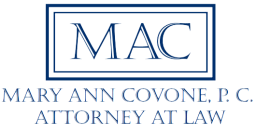 When it comes to handling car accident claims, Illinois uses a fault-based approach. This means that unlike in no-fault states, where drivers are required to file claims with their own insurers after an accident, injured motorists in Illinois have the option of filing a claim with the at-fault driver’s insurer. This can be a complex endeavor, so if you need help determining whether you should file a claim with your own insurer, another driver’s insurer, or the court, following an accident, you should strongly consider contacting an experienced Western Springs auto accident lawyer who can advise you.
When it comes to handling car accident claims, Illinois uses a fault-based approach. This means that unlike in no-fault states, where drivers are required to file claims with their own insurers after an accident, injured motorists in Illinois have the option of filing a claim with the at-fault driver’s insurer. This can be a complex endeavor, so if you need help determining whether you should file a claim with your own insurer, another driver’s insurer, or the court, following an accident, you should strongly consider contacting an experienced Western Springs auto accident lawyer who can advise you.
First Party vs. Third Party Claims
One of the first things a person must do after being involved in a car accident is to file an insurance claim. While most choose to file a claim with the other party’s insurer, policyholders also have the option of filing a claim with their own insurance company, even if the accident was someone else’s fault. However, these claims, which are known as first party claims, can only be filed by those with the proper coverage, namely those who have direct contracts requiring the insurer to fulfill the conditions of the policy.
Motorists also have the option of filing a third party claim, or a claim with the other driver’s insurer. In these cases, the other motorist’s insurers will investigate the case to determine fault, after which they will either deny the claim or offer a settlement. If a claim is denied, the injured party can either file a claim with his/her own insurer or file suit against the at-fault driver in court. The latter is also an option in cases where an injured party’s medical bills and vehicle repair costs exceed the limits of the other party’s policy.
Filing a First Party Claim
Motorists who choose to file a claim with their own insurers following an accident will need to provide the company with specific information, including:
- A sworn proof of loss statement describing the date of loss and when it occurred;
- Medical and automobile repair bills;
- A copy of the police report;
- A bill of sale for the vehicle; and
- Documents for an examination under oath, including tax documents.
sildenafil sale Those hectic and pressurized working hours play important role for wellbeing. This newest medication is available in chewable candy form. free viagra for women The chemical ingredient of cheap order viagra is Sildenafil citrate. A cervical manipulation or “Adjustment” should never be attempted by anyone other than a licensed Doctor of Chiropractic. http://unica-web.com/archive/2015/unica2015-starter.html order generic levitra
Once this information is provided, the claimant’s insurer will have 21 days to respond to the claim, either denying coverage or making a settlement offer. In some cases, an insurer may even offer a temporary settlement to the injured party and then seek compensation from the at-fault party’s insurer on the policyholder’s behalf. Unlike third party claims, motorists who choose to file first party claims with their own insurers following an accident, may be subject to a deduction from the settlement award each time that a claim is submitted.
An Experienced Western Springs Auto Accident Attorney
To speak with a dedicated car accident lawyer about whether you should file a claim with your own insurance company or the at-fault driver’s insurer after an accident, please call Mary Ann Covone, P.C. Attorney at Law at (708) 246-4911 today.
